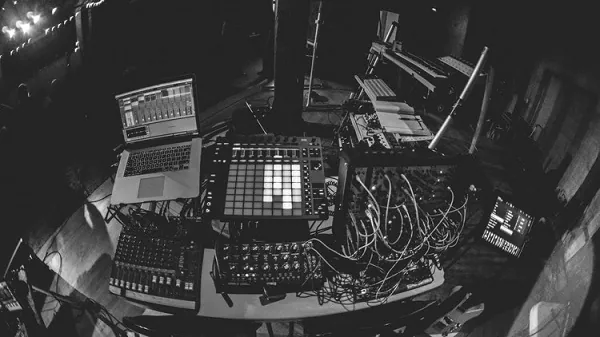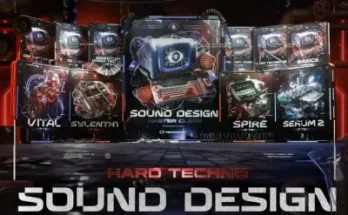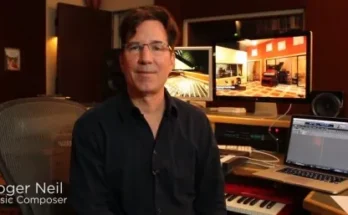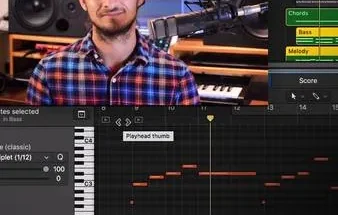An Introduction to Synthesis Methods and Techniques
This course provides a strong foundation in the fundamentals of sound synthesis including a discussion of the basic parameters found in software and hardware synthesizers, various commonly used synthesis methods, and techniques for creating unique sounds with virtual instruments found in Logic Pro, Ableton Live and Avid Pro Tools.
Specific topics include oscillator and waveform types, sound generation, and modulation sources and parameters such as LFO’s (low frequency modulators), envelopes, and step sequencers. Various filter types will be explored as a means of shaping synthesized sounds to create unique textures and timbres.
The course will explore a variety of synthesis methods including subtractive synthesis, component or physical modeling synthesis, FM (Frequency Modulation) Synthesis, wavetable synthesis, and software synthesis that emulates analog hardware synthesizers.
The basics elements of sound including frequency, amplitude, and phase will be discussed using custom software to visualize waveforms, syncing, and the harmonic content of sound. The software used is offered as downloadable freeware (Mac only) with the course, although the apps are not supported and not necessary to learn the material.
The course includes:
• 24 Video Tutorials
• 120 presets for the instruments covered
• 3 Custom Software Applications (freeware – Mac only)
• Logic Session using the Instruments covered
This course is perfect for a beginner just starting to learn the basics of sound synthesis and audio production or a seasoned musician or producer that wants to solidify and expand their skillset.
NOTE: This course was originally licensed by The Pro Audio Files and is now available on Udemy at a discounted rate.
Philip Mantione
Composer and Technologist
Philip Mantione is a composer, guitarist, synthesist, writer, and educator with over 30 years experience in the music industry. He has written and performed with custom software written in Max/MSP and currently teaches Graduate courses at the Los Angeles College of Music, and undergrad courses at Los Angeles Film School and Mt. San Antonio College. His music and multimedia work has been performed world-wide in electronic music festivals, museums and galleries. He is currently a senior contributor of technical articles and reviews for The Pro Audio Files.
Who this course is for
• This course is intended for musicians, composers, electronic music producers, audio engineers, and sound designers.
• The course is geared towards beginner and intermediate levels.
What will you learn
√ Develop and/or solidify a deep understanding of basic sound parameters and interaction concepts.
√ Develop an understanding of the basic parameters used in both software and hardware synthesizers.
√ Develop the ability to manipulate and adjust existing presets to suit your own sonic needs.
√ Develop the ability to create sounds from scratch.
√ Give you the tools to explore and discover sounds you’ve yet to imagine!
Requirements
• A basic understanding of Digital Audio Workstations (DAWs). I will be using mainly Logic Pro, but will also explore a few instruments in Ableton Live and Pro Tools. You don’t necessary need to have any of these programs as the concepts discussed transcend any particular platform or DAW. But it would be helpful to follow along, especially with the Logic Instruments.
• A basic understanding of MIDI controllers and MIDI messages (I’ll give a brief recap of MIDI in this video).
• A set of open ears ready to explore, discover, and create new sounds!
Content (3 sections • 24 lectures)
1 – The Fundamentals (5 lectures • 48 min)
1 – Overview (07:14)
2 – Getting Started (05:35)
3 – Synthesis Methods (08:41)
4 – Sound Fundamentals (14:48)
5 – Synthesis Fundamentals (11:58)
2 – Virtual Synthesizers (17 lectures • 2 h 59 min)
6 – ES M (monophonic synthesizer) (09:59)
7 – ES E (ensemble polyphonic synthesizer) (12:35)
8 – ES P (80’s Style polyphonic synthesizer) (15:14)
9 – ES 1 – Part 1 (emulated analog synthesis) (07:52)
10 – ES 1 – Part 2 (emulated analog synthesis) (14:02)
11 – ES 2 – Part 1 (subtractive synthesizer with FM and wavetable elements) (16:26)
12 – ES 2 – Part 2 (subtractive synthesizer with FM and wavetable elements) (18:02)
13 – EFM1 (FM synthesizer) (13:04)
14 – RetroSynth (multiple synthesis engines including FM, Sync, Wavetable, and FM) (13:04)
15 – Sculpture – Part 1 (component modeling synthesis) (08:40)
16 – Sculpture – Part 2 (component modeling synthesis) (05:44)
17 – Sculpture – Part 3 (component modeling synthesis) (05:10)
18 – Alchemy (additive, spectral, granular, virtual analog synthesis, and more) ( 08:32)
19 – Tension (physical modeling synth in Ableton Live) (07:47)
20 – Analog (analog emulation synth in Ableton Live) (05:25)
21 – Vacuum (virtual analog tube synth in Pro Tools (08: 05)
22 – Customizing Presets (09:36)
3 – Outro (2 lectures • 12 min)
23 – Review (05:45)
24 – Logic Session and Examples (06:04)




